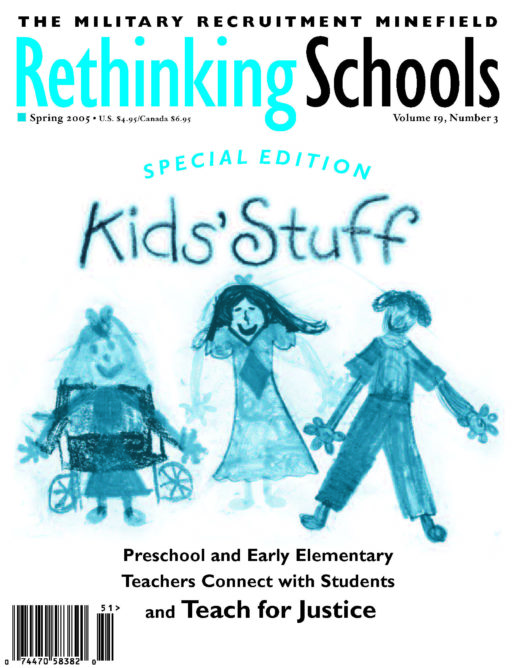Strange Stuff 19.3
Abstinence Inaccuracy
Federally funded abstinence-only sex education programs are leaving students misinformed, according to California Rep. Henry A. Waxman’s recent Congressional study. The study examined the content of sex education programs after the government doubled the funding for these programs over the past four years. Find more information on the report at: www.house.gov/Waxman
The lessons exclude anything incompatible with the abstinence-only curriculum, censoring information about same-sex relationships, abortions, and contraceptives, and allowing religious, anti-abortion material to remain. The flawed curricula present male and female stereotypes as facts, exaggerate abortion’s risks, and mislead students about the effectiveness of condoms. The American Civil Liberties Union (ACLU) and the National Coalition Against Censorship claim abstinence-only programs are biased, and they are working to bring organizations together to object to censorship. More information is available at www.ncac.org.
Standardizing Cheating
Just when the schools appeared to be beating the odds, a Dallas Morning News investigation called the shining star of Houston’s school system “cheater.” Spectacular standardized test results at Wesley Elementary and two other schools in its area aroused suspicion when research found students’ scores dropping off the charts from one year to the next. Some teachers confirm the allegations, providing examples and claiming the school instructed them to help students cheat. The scandal began when Wesley’s once-dreadful scores suddenly improved after former principal Thaddeus Lott introduced Direct Instruction, a scripted curriculum, in the 1970s. Since then, as investigations continue, the Houston schools have never completely silenced rumors of cheating.
Brand-Name Schools
Philadelphia’s newest high-tech high school is going up, up, up
. . . along with the number of sponsors’ names on the list. The school district is hoping to secure the highest bidder for the naming rights to its futuristic, Microsoft-partnership campus. The chance to name the entire school was offered up for $5 million to any company willing to pay, within the School Reform Commission’s restrictions. Individual classroom names are going for approximately $25,000 each, along with the names for other parts of the school, including the auditorium. Called “The School of the Future,” Microsoft says the campus will revolutionize the field of educational technology. So far, the Philadelphia school name remains: for sale.
For more information, see www.commercialalert.org/index.php/external/true/article_id/278.
SAT Vocabulary Gone Fiction
Karen B. Chapman’s The Marino Mission: One Girl. One Mission. One Thousand Words offers high school students a new way to study. The Marino Mission’s fictional plotline provides a nontraditional backdrop for 1,000 SAT vocabulary words. Complete with definitions for the superscripted words at the bottom of each page, the book aims to make SAT vocabulary more approachable than memorizing words from a list or a menacing literature book.
“Southern Slavery, As It Was” . . . Not
North Carolina’s Cary Christian School has faced questions regarding the booklet “Southern Slavery, As It Was” in its regular history curriculum. While school principal Larry Stephenson claims the booklet is merely meant to provide ninth graders studying the Civil War an alternative perspective, critics say the booklet’s justifications for slavery promote intolerance, especially among younger students. “Southern Slavery, As It Was” presents slavery as “a relationship based on mutual affection and confidence.”
No More Chorus Lines
An Alabama representative has proposed withholding the use of state money for material that “promotes homosexuality.” If enacted, it could pull funding from plays like A Chorus Line and Cat on a Hot Tin Roof. Even though the bill aims to limit plays performed by state-funded theater departments, the bill’s sponsor claims it is still not censorship. He explains he is not opposed to theater in general, “But why can’t you do something else?”

